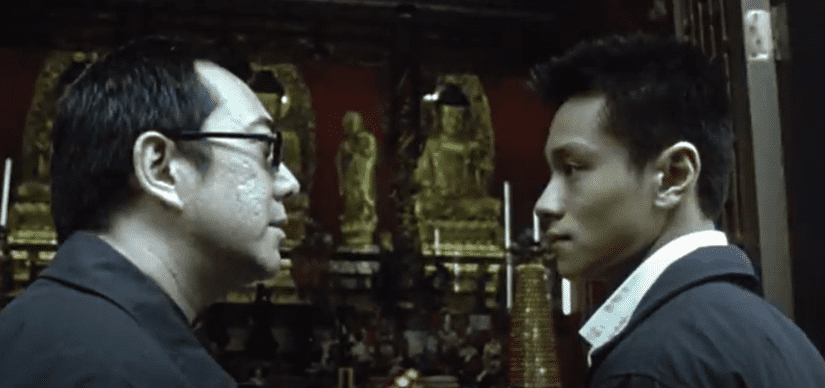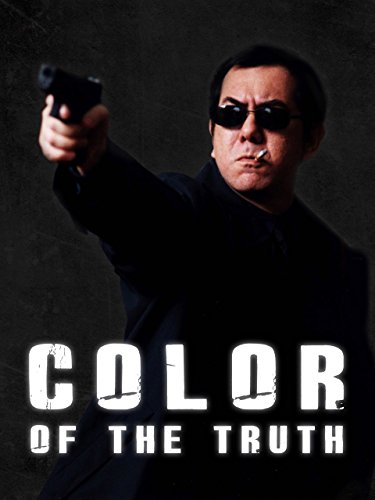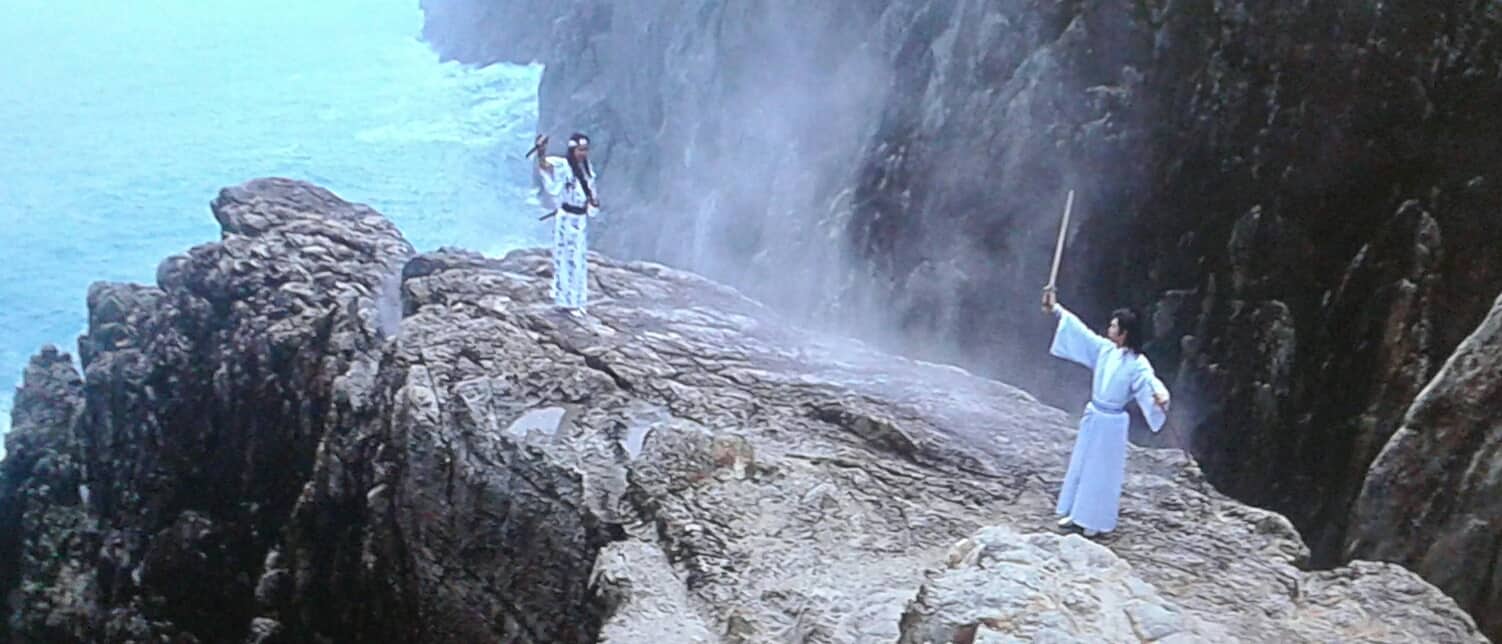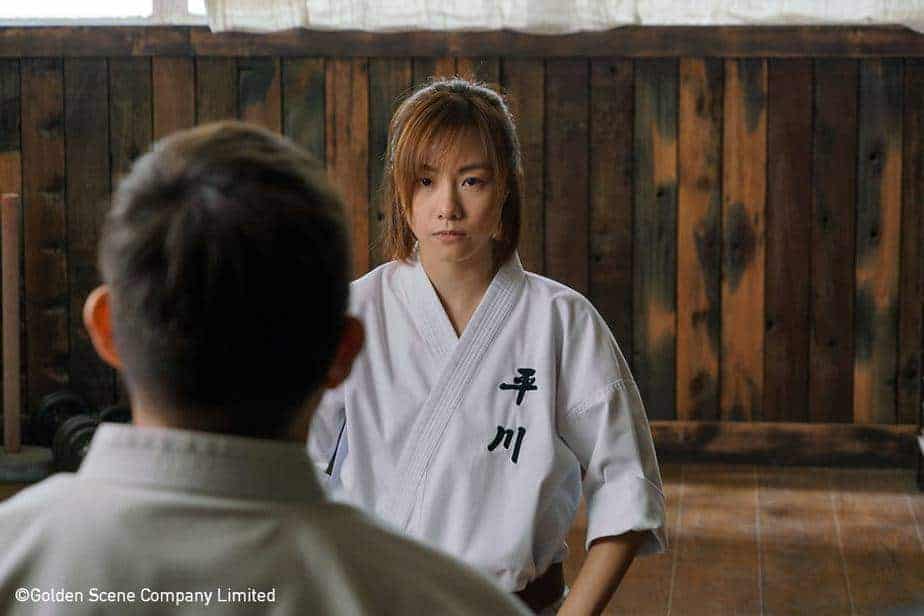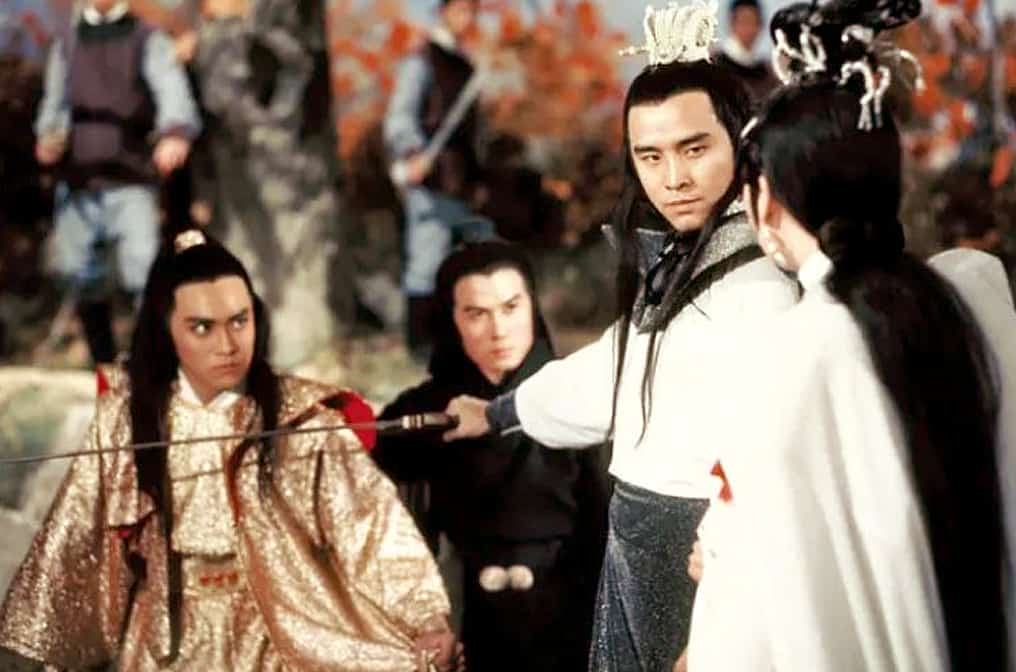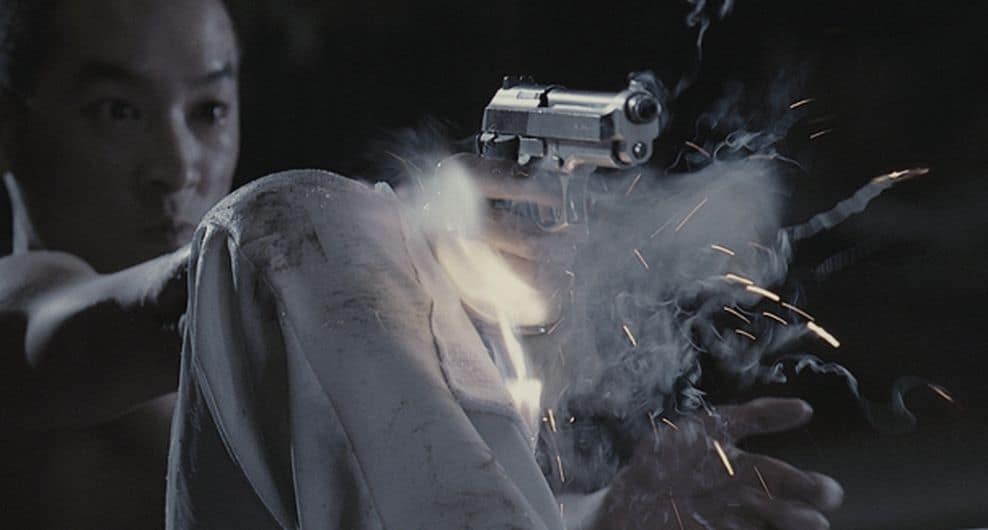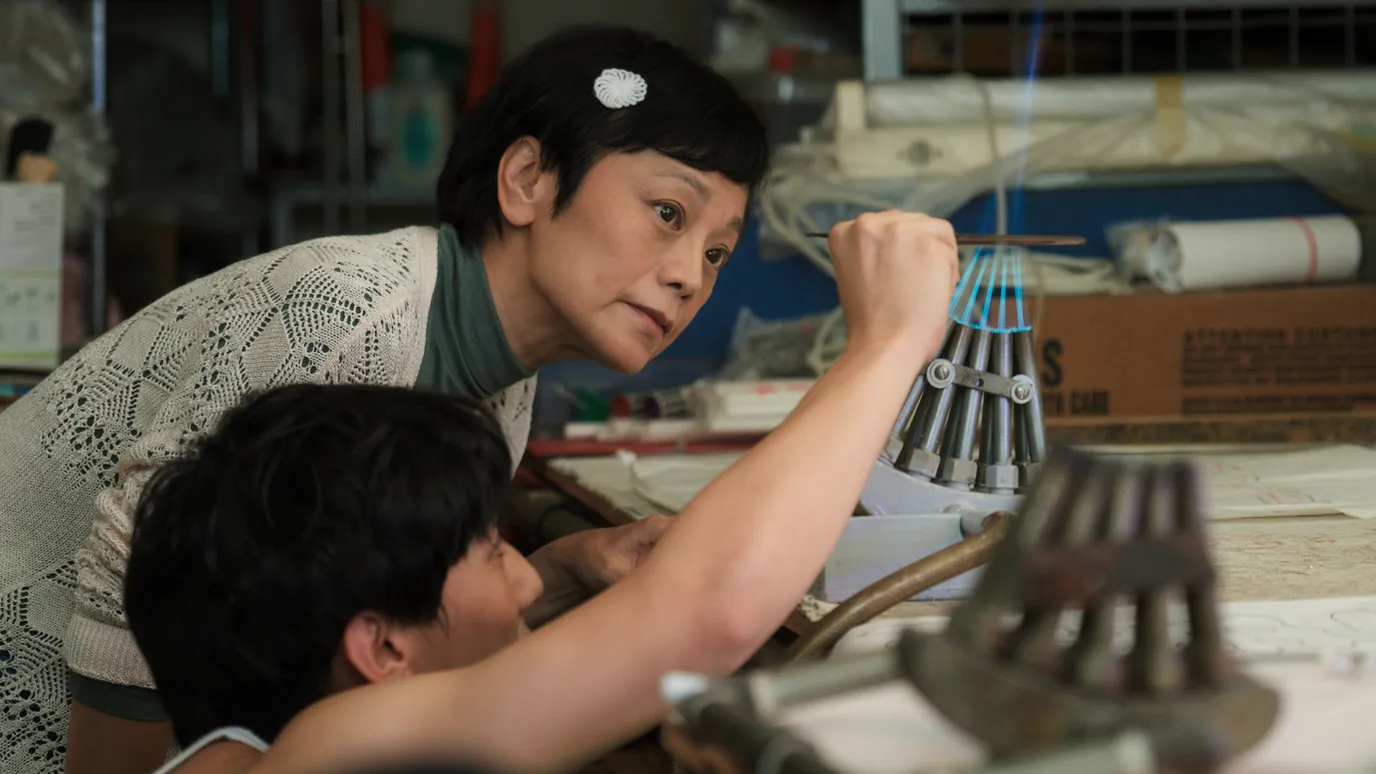To be a fan of Hong Kong cinema is to experience déjà vu on a regular basis. If there is one hit movie in the region, then inevitably there will be numerous follow ups, some done with good intent, others simply to cash in. “Infernal Affairs” was onε such hit and so followed a procession of cop thrillers in quick succession. Never one to miss out on a trend, Wong Jing teamed up with Marko Mak to create what was one of the better examples of the genre with “Colour of the Truth”
Watch This Title
on Amazon
Corrupt cop Seven Up (Sean Lau) tries to warn gangster Blind Chiao (Francis Ng) that his partner Wong Jiang (Anthony Wong) has plans to arrest him. The three confront each other on a rooftop and three shots are fired leaving the first two dead. At Seven Up's funeral, his wife urges her son to remember the face of Wong Jiang. Years later, the son Cola (Raymond Wong) is a policeman in his own right, with Wai (Jordan Chan) a mysterious backer of him from the side encouraging him to take his revenge. Inadvertently aiding Wong Jiang, Cola gets transferred to his team. Kwan (Patrick Tse) after a drug deal goes sour, gets the police to safeguard his house and protect his family. Loyalties shift as the truth emerges and ultimately another rooftop confrontation will occur.

Anthony Wong's career long straddling of the line between good and evil makes him the perfect person to take on the lead role of Wong Jiang. There is no star image that would interfere with his performance and he pitches it perfectly. Right until the very end, despite all the good perceptions, you are never sure as to which side of the angels he is on. This shade of grey is perfectly suited to him and it's a strong leading role that is needed to carry the dramatic weight of the piece. It's also one of the rare times that his Euro-Asian background gets played on with his western father becoming an interesting side character in the main developments. This shading is needed as Raymond Wong is more of a blank canvas as the revenge-seeking Cola. We never really get to feel the inner turmoil that he should be feeling as he comes more into the sphere of Wong Jiang and plays more like a sidekick than a potential threat. Jordan Chan's more mysterious Wai is played straighter than usual. There is less of the Cantonese drawl and fast talking of his triad roles. The only problem is that the mysteriousness leads to little depth until the finale.
Having the most fun is clearly Patrick Tse as Kwan. Ponytailed, overly stylised dress sense permanently in shades along with a big cigar, he is the very definition of gangster style. If he had a moustache, he'd be twirling it. It's a showy, look-a-t me performance that comes close to stealing the whole thing and brings an energy to what is a rather stately paced production. Chapman To's Toast seems a little out of place as the comic relief but they do allude to his place in the team, that doubles as another wrinkle in the character of Wong Jiang. We get cameos from Sean Lau and Francis Ng as Seven-Up and Blind Chiao respectively to open up the drama, butdon't be fooled by any billing that indicates that they are anything more than guest appearances. Gillian Chung and Pinkie Cheung bring different attributes to their roles as Kwan's daughter and wife. Whilst plot devices more than characters, they do have some good moments that add to what would be an otherwise male centric drama.
The musical cues are a little different. We get a more Bollywood feel to the score that, whilst can be a little distracting and at times overshadowing the action on screen, does give a bit of freshness to the familiar. The colour scene is faded out with black and white flashback sequences that try to give it that modern neo-noir vibe. This though gets diminished a little by the occasional moments of over-editing stylisation that it doesn't really need but was in vogue at the time. Whilst Wong Jing is credited with being co-director, it's clearly that Marko Mak is the one at the helm, visually. There are traces of Wong Jing's usual vulgarity but the consistency of look and tone leads you to question how much he was involved in the project.
Thematically, the “Sins of the Father” plot devise is a strong one with both Wai and Cola impacted by their father's deaths to follow in their footsteps in the name of revenge. The sense of inevitability and fate looms over the piece as we know at some point their destinies will converge. This is one of the key elements of noir with characters following an almost predestined journey. Wong Jiang becomes an alternate father figure for Cola to replace the one that he lost and it's that almost Oedipal narrative in that his mother wills the destruction of this surrogate despite meaning betraying the law he upholds. Wai becomes almost the devil on the shoulder, urging him on to commit the crime whilst keeping his own hands clean. It's a world where apart from Kwan, no-one is what they appear to be. The script maintains the interest throughout, although these dynamics get a bit strained by the end as the twists come thick and fast. Most of which will not be of a surprise if paying attention but one or two are quite inventive and actually do make sense once you've had time to digest the actions.
The action, when it comes, is solid although like most action movies, the consequences seem to be ignored. The fact that at one point, Wong Jiang's apartment is shot to pieces causing the appearance of an antique hand grenade does not have any affect, and does take the realism out of the piece.
This is one of the better police thrillers from the period. It has an excellent cast, a good story and enough action to keep you entertained. What prevents it from becoming even better is the lack of engagement with Cola's dilemma that reduces the dramatic tension. An enjoyable piece and an example of the talent that Anthony Wong possesses when given something to sink his teeth into.


